DAVID AMES CURTIS
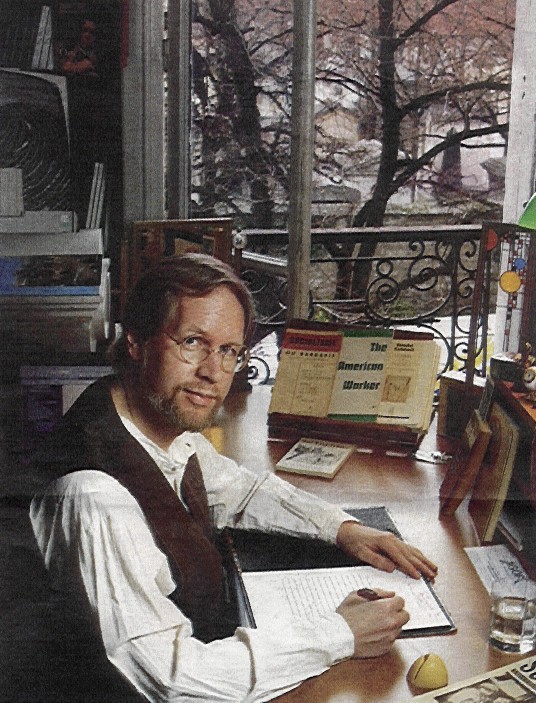
DAVID AMES CURTIS
27, rue Froidevaux 75014 Paris FRANCE TEL/FAX: 33 (0) 1 45
38 53 96
666 Main Street #305 Winchester, MA 01890 USA; TEL: 1-781-729-0523
davidamescurtis@gmail.com
DAVID AMES CURTIS: BIOGRAPHY
DAVID AMES CURTIS: CURRICULUM VITAE
DAVID AMES CURTIS: TRANSLATOR'S
FOREWORDS
THE
STRANGE AFTERLIFE OF CORNELIUS CASTORIADIS: THE STORY OF A REVERED EUROPEAN
THINKER, A LITERARY LEGACY, FAMILY SQUABBLES, AND INTERNET BOOTLEGGING (THE
CHRONICLE OF HIGHER EDUCATION, MARCH 26, 2004, PP. A14-16)
"David [Ames Curtis] est un traducteur
comme on en rencontre rarement, consciencieux à l'extrême, vérifiant
inlassablement tout ce qu'il fait, n'hésitant jamais à demander
l'avis des auteurs sur ce qui peut poser problème dans les textes sur
lesquels il travaille. Il a maintenant traduit six volumes de mes écrits,
qui ont été publiés par la University Press of Minnesota,
par la Oxford University Press, par la Stanford University Press et par Blackwell's.
Pierre Vidal-Naquet, dont il a également traduit et publié plusieurs
ouvrages et qui, philologue de métier, est d'une exigence scolastique
sur l'exactitude et la précision des expressions, ne tarit pas d'éloges
sur son compte." --Cornelius Castoriadis, 19 juillet 1997.
"In America...where it has the advantage, in the person of David Ames Curtis,
of benefitting from a remarkable translator, [Castoriadis's thought] interests
not only 'radical' intellectuals but also, in a larger way, numerous researchers
in the social sciences." --Christian Delacampagne, op-ed piece in
Le Monde, Friday, December 22, 2000, p. 18.
"Le traducteur David [Ames] Curtis est philosophe. Il a traduit Jean-Pierre Vernant parmi d’autres auteurs français. C’est un bon philosophe. Il a accepté le projet [de traduction de Pas à pas] parce qu’il y a vu une philosophie de la ville et de la vie quotidienne qui l’a passionné. Il a été séduit par les pages sur l’imaginaire. Même si elles ne sont pas très développées. Il en a senti l’importance, étant un lecteur et commentateur de Cornelius Castoriadis. C’est un homme qui prend son temps. Il est venu chez moi, où nous avons passé une journée à revoir les concepts fondamentaux, y compris les notions factuelles, s’il fallait les traduire comme ci ou comme ça. . . . Curtis a dégagé tout le fond philosophique du livre et cela m’a fait plaisir". --Jean-François Augoyard. Entretien. Revue Urbanisme, 359 (mars-avril 2006): 75.
"Thank you very much for sending the texts! They were genuinely an intriguing and thought-provoking read!
I greatly enjoyed how Augoyard incorporates daily life into his study of urban space. It is highly rewarding to find another author who can recognize what many architects and urban planners still overlook: that social space is society in action! With the form-focused mindset that seems to dominate architecture and urban planning education, engrossed in studio practices that hypothesize buildings for--and not by--society, finding an author close to a Lefebvrian perspective is always encouraging. Perhaps this resonates even more with me because it was through Lefebvre that I understood how Castoriadis's discussions on society also pertain to the production of space. After all, if, as Lefebvre proposes, social space is the manifestation of social relations, and if social relations are imaginarily instituted as Castoriadis postulates, then social images and institutions are necessarily socio-spatial images. ...
Regarding your proposal to make the Afterword a catalyst for dialogue between the author and the translator, I found it spectacular and am thrilled to see how well it worked! It is fascinating to see how the language barrier can be bridged through these conversations, clarifying much that might otherwise be lost in an isolated translation of the original author--and all while keeping the text alive, as it should be. These clarifications greatly assist in the meaning-making process, as this dialogue brings out cultural and socio-spatial issues that, had they not been cleared, would be capable of creating semantic confusion.
Now, I must admit one thing: the philosophical and theoretical repertoire in both your Afterword and Augoyard's response left me speechless. My knowledge of philosophy comes from brief forays into the subject during high school and sporadic courses I took while pursuing degrees. ...Yet, even so, I managed to follow much of the reasoning you articulated about Augoyard's ideas, which truly captivated my interest. You were spot on in recommending this work. It indeed appears to be a text that I will very much enjoy! Thank you!" --Alexandre Bomfim
PRINCIPAL TRANSLATIONS:
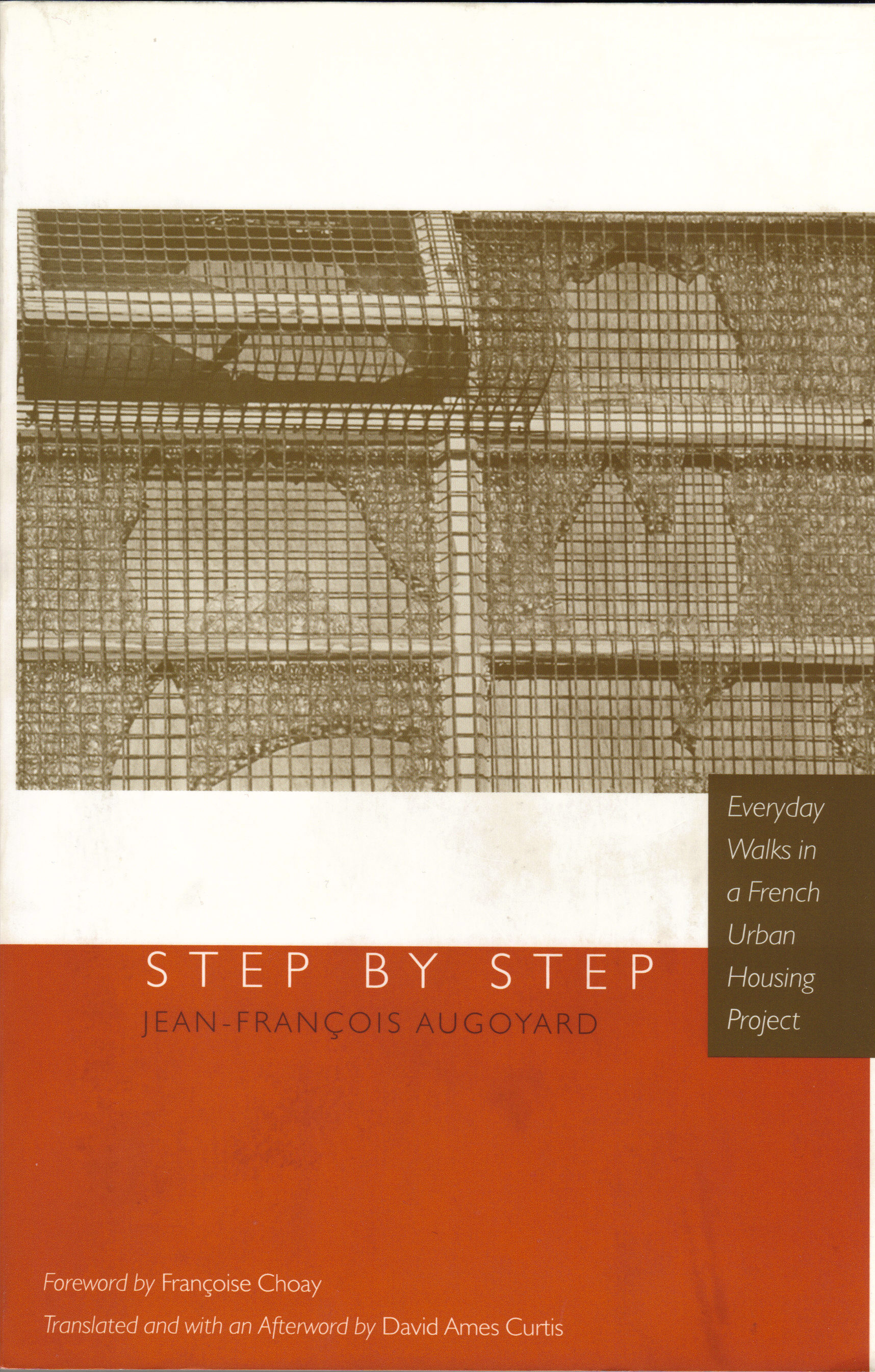
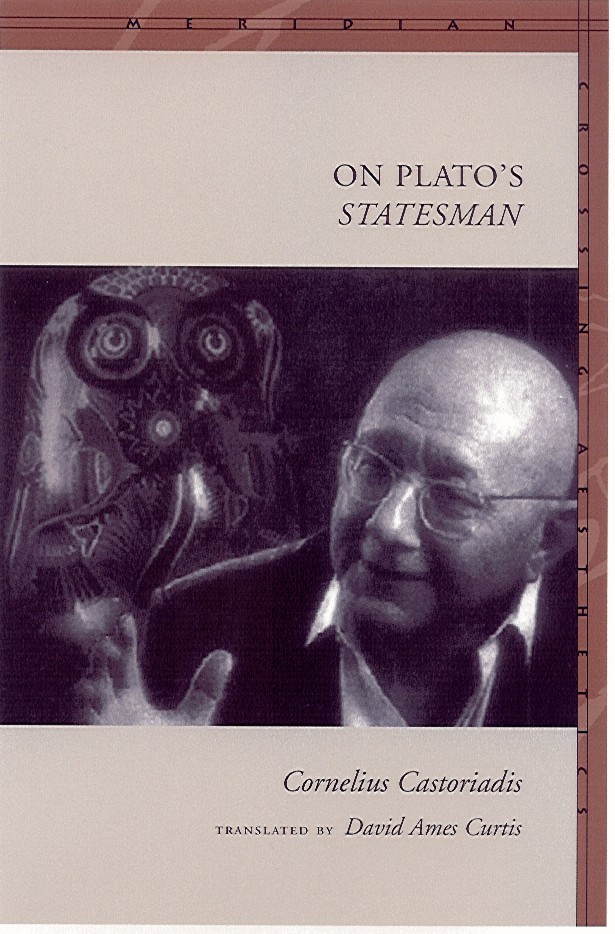
Cornelius
Castoriadis, On Plato's Statesman (Stanford University Press, 2002)
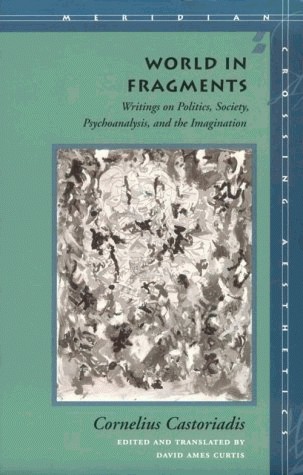
Cornelius
Castoriadis, World in Fragments (Stanford University Press, 1997)
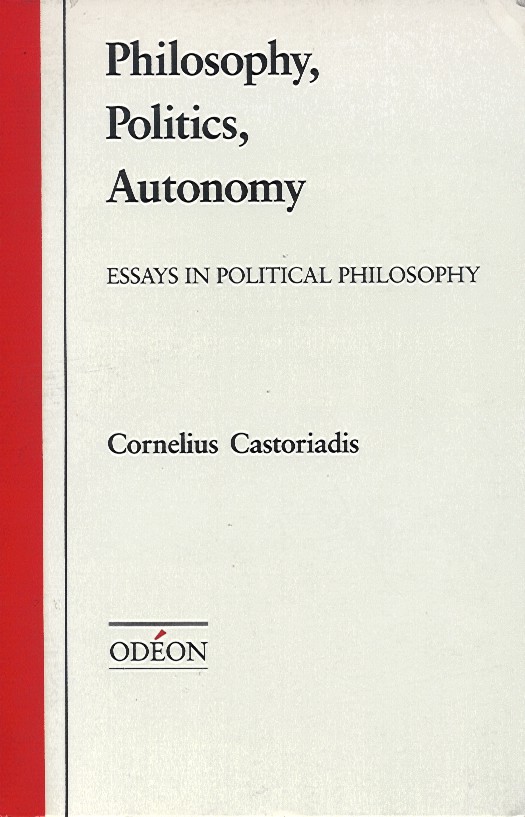
Cornelius
Castoriadis, Philosophy, Politics, Autonomy (Oxford University Press,
1991)

Cornelius
Castoriadis, Politiical and Social Writings, vols 1-3 (University of
Minnesota Press, 1993)
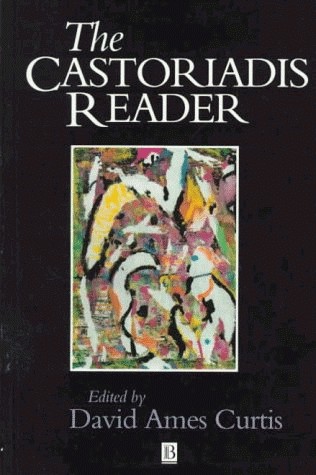
Cornelius
Castoriadis, The Castoriadis Reader (Basil Blackwell, 1997)
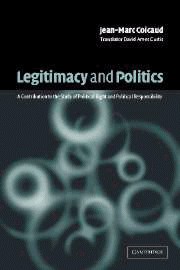
Jean-Marc
Coicaud, Legitimacy and Politics: A Contribution to the Study of Political
Right and Political Responsibility (Cambridge University Press, 2002)
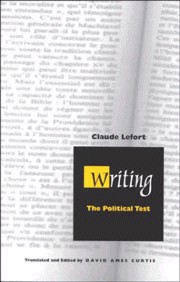
Claude Lefort, Writing:
The Political Test (Duke University Press, 2000)

Pierre
Vidal-Naquet, The Jews: History, Memory, and the Present (Columbia
University Press, 1996)
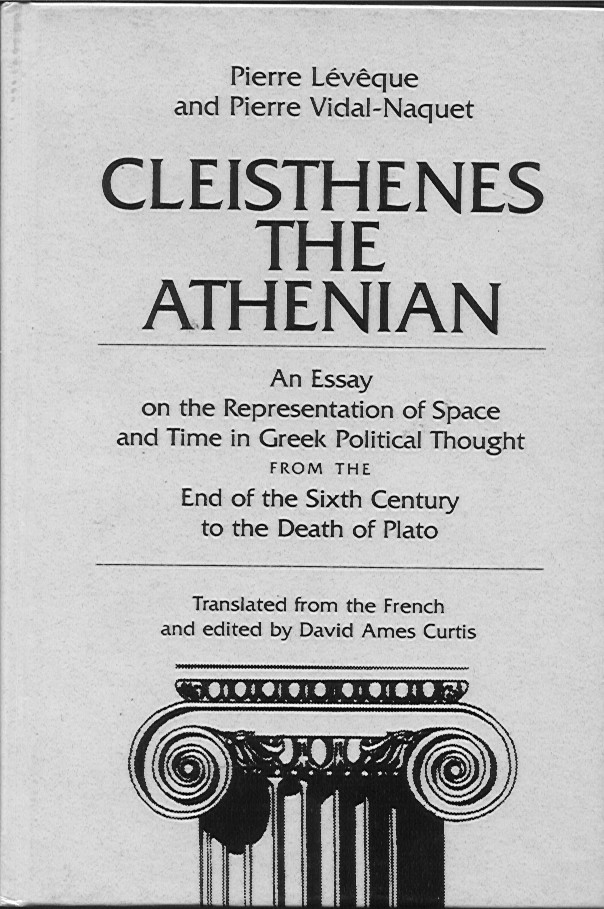
Pierre
Lévêque and Pierre Vidal-Naquet, Cleisthenes, the Athenian.
An Essay on the Representation of Space and of Time in Greek Political Thought
from the End of the Sixth Century to the Death of Plato. With a new discussion
On the Invention of Democracy. Pierre Lévêque, Pierre Vidal-Naquet,
and Cornelius Castoriadis (Atlantic Highlands, NJ: Humanities Press, 1996; now
available from Prometheus Books)

